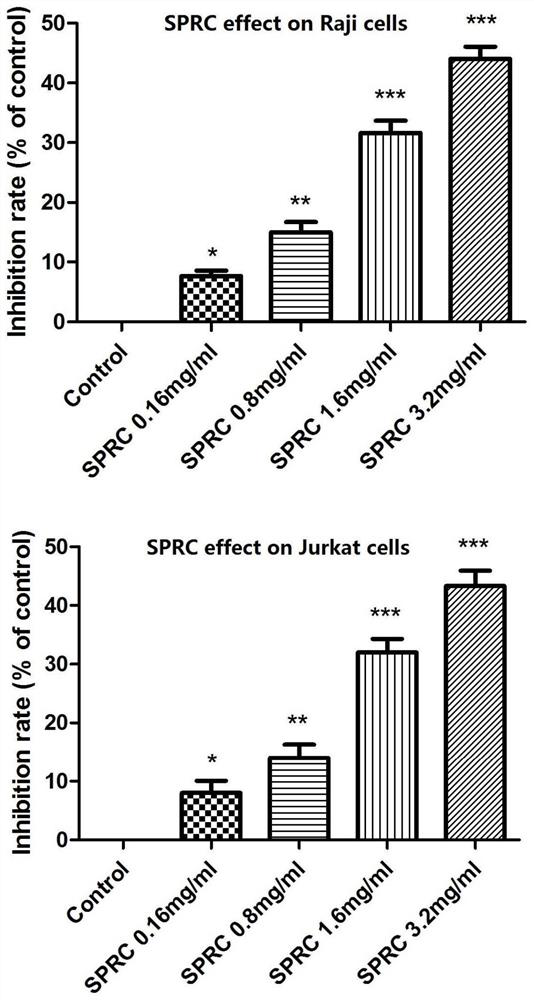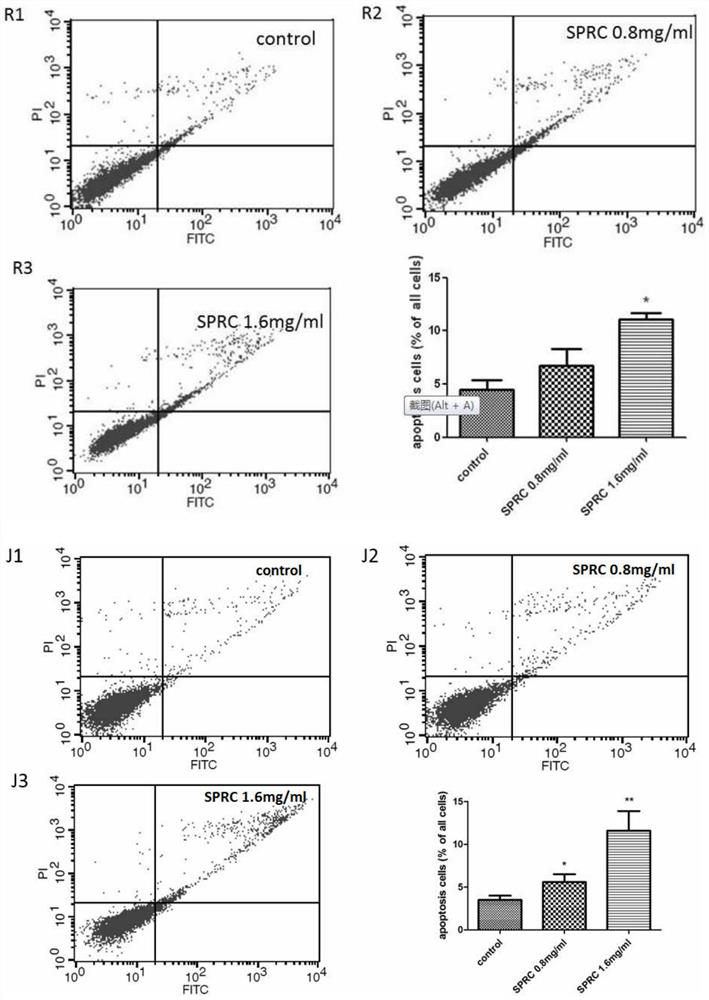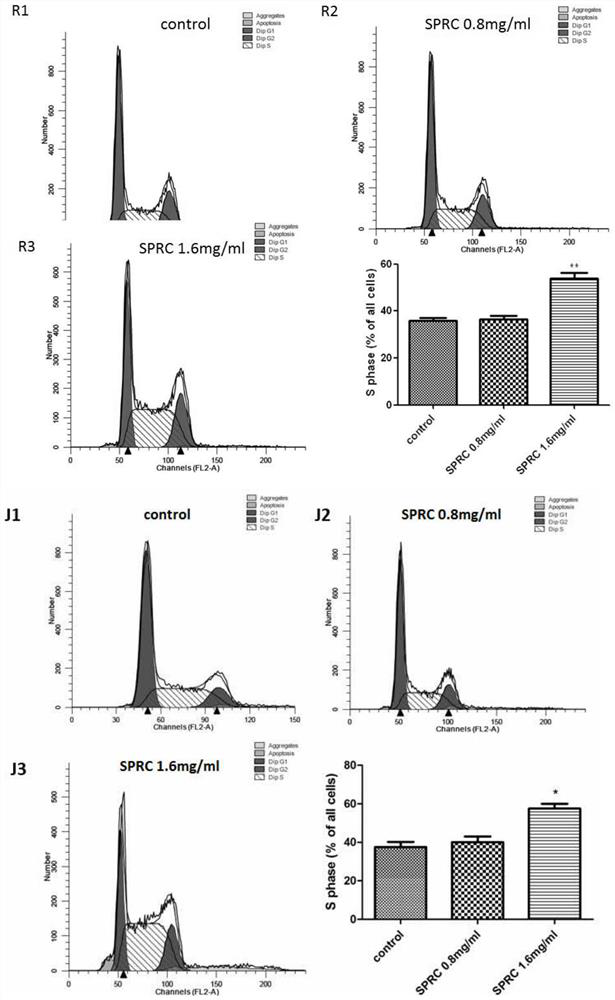Use of propargyl cysteine in the preparation of drugs for treating hematological systemic tumors
A cysteine and blood system technology, which is applied in the field of propargyl cysteine in the preparation of drugs for treating hematological system tumors, can solve the problems such as no reports that propargyl cysteine is anti-hematological tumor, etc. Inhibit cell cycle and promote apoptosis
- Summary
- Abstract
- Description
- Claims
- Application Information
AI Technical Summary
Problems solved by technology
Method used
Image
Examples
Embodiment 1
[0020] Example 1 Cell Lines and Culture Mode
[0021] Human T lymphocytes (Jurkat) and lymphoma cells (Raji) cells (purchased from the cell bank of Shanghai Institute of Biological Sciences, China). Culture conditions: respectively culture Jurkat and Raji cells in RPMI 1640 containing 10% fetal bovine serum and 1-2% penicillin and streptomycin (100U / ml), and place the cells in a 5% CO2 incubator at 37°C.
Embodiment 2
[0022] Example 2 SPRC reduces cell viability experiment
[0023] 5*10-3 Jurkat and Raji cells were seeded in a 96-well plate with a volume of 200ul per well. Add SPRC to final concentrations of 0.16mg / ml, 0.8mg / ml, 1.6mg / ml and 3.2mg / ml respectively. After 48 hours of treatment, the cell viability was detected by the CCK-8 method, and the results were as follows: figure 1 As shown, the cell viability of 0.16mg / ml, 0.8mg / ml, 1.6mg / ml and 3.2mg / ml SPRC treatment groups were significantly lower than that of the normal control group, and SPRC can inhibit the growth of T lymphocytes and lymphoma cells. vitality.
Embodiment 3
[0024] Example 3 SPRC promotes cell apoptosis experiment
[0025] The Jurkat and Raji cells were seeded in culture dishes and treated with 0.8 and 1.6 mg / ml SPRC for 48 hours. Annexin I and PI stained cells were detected by flow cytometry and the results were as follows: figure 2 As shown, the results of flow cytometry showed that 0.8mg / ml SPRC can induce cell apoptosis, and 1.6mg / ml SPRC can significantly induce cell apoptosis.
PUM
 Login to View More
Login to View More Abstract
Description
Claims
Application Information
 Login to View More
Login to View More - R&D
- Intellectual Property
- Life Sciences
- Materials
- Tech Scout
- Unparalleled Data Quality
- Higher Quality Content
- 60% Fewer Hallucinations
Browse by: Latest US Patents, China's latest patents, Technical Efficacy Thesaurus, Application Domain, Technology Topic, Popular Technical Reports.
© 2025 PatSnap. All rights reserved.Legal|Privacy policy|Modern Slavery Act Transparency Statement|Sitemap|About US| Contact US: help@patsnap.com



